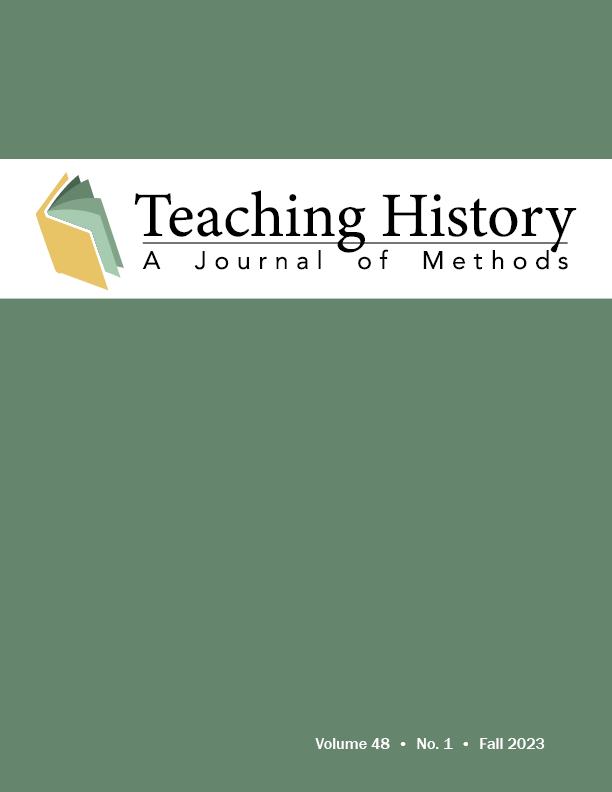The Timeline Game
Constructing Historical Narratives in History Survey Courses
DOI:
https://doi.org/10.33043/TH.48.1.125-133Keywords:
Timelines, active learning, Effective teaching strategies, Game-based learning, Historical argumentation, Historical thinkingAbstract
What events get included in historical narratives? Which ones get left out? Why? How might we encourage students to consider and debate these decisions while simultaneously making arguments about causation, the politics of knowledge production, power, and perspective? This article explores the use of a “timeline game” to help students articulate and develop historical argumentation skills. Students’ main objective in the game is to convince their classmates to vote for their groups’ chosen events, nominating them onto a “Final Timeline,” which includes the most “significant” events of the course’s history. Students argue for the significance of their chosen events in various ways including (but not limited to): articulating how it caused other events, how it represented important course themes, how it challenged dominant Eurocentric narratives, or how it shed light on a perspective otherwise obscured or hidden by the timeline’s main events thus far. Though designed for college-level African and Global history survey courses, the game could be adapted for a number of different classroom contexts and grade levels.
Downloads
Downloads
Published
How to Cite
Issue
Section
License
Copyright (c) 2023 Caitlin Monroe

This work is licensed under a Creative Commons Attribution-NonCommercial-NoDerivatives 4.0 International License.
By submitting to Teaching History, the author(s) agree to the terms of the Author Agreement. All authors retain copyrights associated with their article or review contributions. Beginning in 2019, all authors agree to make such contributions available under a Creative Commons Attribution-NonCommercial-NoDerivatives 4.0 International license upon publication.



